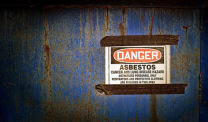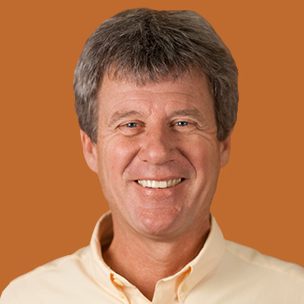Mr. Meso: Mesothelioma made for an enduring love story for Gene and Geri Lepore
Asbestos Exposure & BansWritten by Tim Povtak | Edited by Walter Pacheco

Geri Lepore felt the same range of emotions family members often face after someone close to them is given a diagnosis of mesothelioma. There was denial and then depression, followed by fear and frustration. At times, hopelessness threatened to overwhelm her.
She was not immune.
Yet Geri found a way to turn the most heart-wrenching time in her life into a rewarding journey, finding light in a tunnel of darkness, becoming an inspiration admired by others.
As the primary caregiver for her husband, Gene Lepore, she walked him step-by-step through his battle with the disease, never giving an inch, never conceding defeat.
“When I look back now, I realize it became a love story for us,” Geri Lepore said during a recent telephone interview from her California residence. “We fought the fight together. We gave it our all, and it brought us closer together. For that I’ll always be thankful.”
His Disease Inspired Her
Gene was diagnosed Jan. 30, 2009, with Stage IV mesothelioma, a cancer caused primarily by exposure to asbestos. The disease affects the lining of the lungs, abdomen, and heart.
Fifteen months after his initial diagnosis of mesothelioma on May 9, 2010 Gene took his last breath. He quietly passed away at home in Camarillo, California, surrounded by his family and close friends.
Geri discovered her own strength, willpower, and courage on this painful journey, traits she believes only her husband of 32 years could inspire. He was the one with cancer, but Gene also kept her going through the physical and emotional roller coaster that became their life. Gene would cheer her on, keeping her strong while caring for her soul mate.
While Gene’s optimism and attitude kept Geri going, she said she could not have done it without the love and support they got from their family, particularly their adult children, Kristy and Michael.
Geri recently spoke at the First International Symposium of Lung-Sparing Therapies for Malignant Pleural Mesothelioma in Santa Monica, California, an event chaired by Dr. Robert Cameron, Director of Thoracic Oncology, Department of Surgery, at the UCLA Medical Center. Dr. Cameron, one of Gene’s many doctors, was impressed by his will power, spirit and their fight and resolve until the end.
“You have to make choices in fighting this disease. Fear will destroy you. Fear will paralyze you,” Geri said. “It wasn’t `I have cancer.’ It was ‘we have cancer.’ It invaded our home, our family. But we never ran from it.”
They Called It Mr. Meso
Gene called his cancer “Mr. Meso,” giving a name and a face to the adversary that together they would battle daily. Transferring the cancer outside of their loving relationship allowed all negative feelings/emotions to be aimed at IT.
“Gene was a funny guy. He liked that name,” Geri said. “I’d say `How’s Mr. Meso today? Is he bothering you? We’re going to attack him today. We’re going to eradicate this thing.’ It was easier to attack Mr. Meso. He changed us. But he changed our relationship for the better.”
Learning Mesothelioma
Initially, Kristy took on the laborious task of researching everything she could about mesothelioma, reading and listening and coming to understand it. The understanding was important when the Gene and Geri visited a multitude of physicians. They believed knowledge was power.
Eventually, Geri understood how it worked and how best to manage it.
What Geri didn’t always do was take the advice of experts, who told her to lean on support groups, rely more on others outside her tight circle. She wanted to keep it within the family.
“They kept telling me, you don’t have to do this yourself, but I was like ‘no, no, no’ to everything. I didn’t want to hear anyone else’s sad story. I was living my own,” she said. “I knew his time was limited. I wanted to spend it with him, one-on-one. After his death, I did join support groups both at the funeral home and local church with Christian brothers and sisters.”
Geri, who was once active, athletic, and engaging like her husband, saw her own health decline. Taking care of her health and well being was rather far down the priority list.
Apart from spending time with Gene or going to work, she rarely left the house. During this time, she would go to work each day, entrusting family or friends with Gene’s care; returning home in the afternoon to bring a smile to his face and rejoin the fight.
Surviving as a Survivor
Now with over a year passing Gene’s loss, Geri is just now getting back to her old self physically.
“Looking back, I’d tell people to strike a balance. Take care of yourself. Initially, I tried to go it alone. But it (being the caregiver) can break you down physically,” she said.
“Everyone is different. At some point, we started relying more on friends outside our family. You find out who your true friends are. A lot of people can’t deal with dying, and that’s okay. It was not a burden to me. It was my greatest joy to take care of my husband thru sickness and health. Our faith carried us through. It was truly unconditional love.”
Like many caregivers, Geri transformed from relying heavily on her husband to literally carrying him. She was the one who attended to daily schedule of medications, treatments, his personal hygiene and appointment schedules.
She bathed, shaved, and fed him. For the first time in their married life, she managed their financial affairs. It was like having two and three jobs at once.
At the end, Michael took over the physical lifting because though Gene weighed less, it was hard for Geri to lift him up.
Geri emphasized that, “I am extremely proud of both our adult children in all that they did for us when we needed them the most.”
“The whole thing can either make you stronger, or it can tear you apart,” she said. “There was a time I was angry. I didn’t like people saying I was strong. I didn’t even know what to pray for at times, but I never lost hope.”
A reading from Corinthians became her daily prayer: “Love is patience, love is kind . . .”
“I would ask God for His love, and then it grew to asking for patience and on and on,” Geri said.
How to Be a Caregiver (the True Unsung Heroes)
Although each case is different, experts seem to agree on a few topics for caregivers:
- Don’t be afraid to lean on others
- Find a support group, because experience helps
- Take time away to recharge mentally
- Find ways to reduce the stress (exercise, yoga, Tai Chi)
- Eat healthy
- Ask for help
“There is nothing that can prepare you for the devastation that comes with a terminal diagnosis,” said Lorraine Kember, whose husband died from mesothelioma and prompted her to write a book “Lean on Me” on the topic of Care Giving.
“Knowledge is power, and the more we understand about the disease, the more we can do to improve the ‘quality of life,’ for the loved ones. It removes the sense of helplessness, and gives us strength.”
Geri still works at the Department of Navy, where she met her husband many, many years ago. She still talks to him daily and feels his presence. She still sees his smile, and allows it to give her strength.
She always smiles back.
“I value our time together. Every minute,” she said. “It (care-giving) was a 24/7 job, but I’m a better person for it.”







